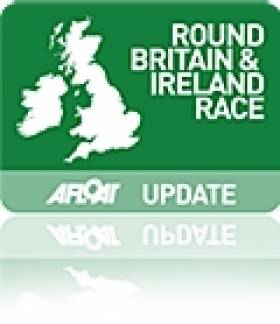Displaying items by tag: Change of Course
Most of the Fleet Expected Back by Sunday
It has been over 24 hours since any yacht, competing in the Sevenstar Round Britain and Ireland Race finished writes Louay Habib. However a rush is expected for the second half of the day, with three boats expected in the early hours of tomorrow morning and the majority accounted for by Sunday.
There are still 12 yachts racing in the Sevenstar Round Britain and Ireland Race but Keith Gibbs C&C 115, Change of Course pulled into Dingle on the west coast of Ireland in the early hours of this morning with a broken forestay.
The next boat to finish should be Chaz Ivill's Grand Soleil 54, John B who is expected to finish in the early hours of tomorrow morning and claim third place in IRC Zero. Clipper 68, Hull & Humber look to be getting the better of their sistership, Edinburgh Inspiring Capital. At 1400 BST Hull & Humber had 108 miles to go and were averaging eight knots giving them an estimated finish time of 0400 tomorrow.
At 1400 BST, the Army Association's A 40, British Soldier was passed the Lizard with 195 miles to go. Over the last 24 hours, they have stretched out their lead on the water and look likely to take line honours for Class IRC One. Steven Anderson's First 40.7, Encore is 21 miles behind British Soldier but still leads the class after corrected time.
In IRC Two, Harry Heijst owner of S&S 41 Winsome, had a proper birthday celebration on board. With balloons and the satisfaction of opening up a big lead on rivals, Swan 44 Selene, owned by Adrian Lower. At 1400 BST, Winsome is 28 miles ahead of Selene and even further ahead after corrected time. Selene took up a very westerly position yesterday but the move has not paid off. Winsome with Sevenstar's Managing Director, Richard Klabbers on board, is very much the yacht to beat in IRC Two.
























































